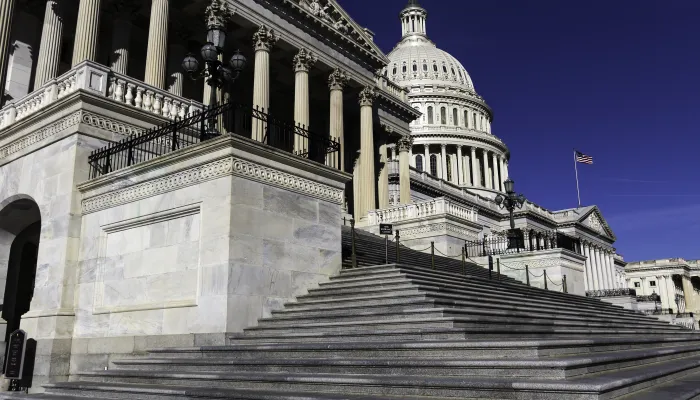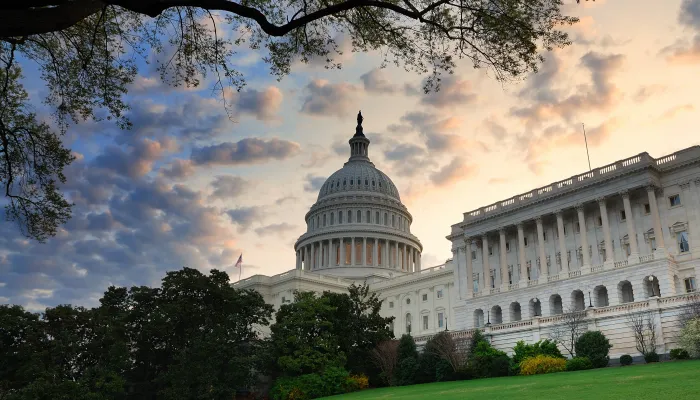Select Committee on the Modernization of Congress Extended
The House voted last week on a rules package that extended the House Select Committee on the Modernization of Congress (SCMC) through the 117th Congress under the leadership of Chairman Derek Kilmer (D-WA). In October the SCMC released its final report of 97 recommendations to improve congressional practices. The Committee for a Responsible Federal Budget applauds members of the SCMC for searching for and finding common ground to help the House of Representatives function more effectively. The Committee especially appreciates the SCMC's attention to improving the congressional budget process and looks forward to the SCMC's work in 2021 and 2022.
The SCMC was established in the House Rules package at the beginning of the 116th Congress to examine practices to promote a more modern and efficient House, procedures, policies to develop the next generation of leaders, and administrative efficiencies. It was a bipartisan committee of 12 members – 6 Republicans and 6 Democrats, including two members serving their first term, two members of the Rules Committee, and two members of the Committee on House Administration. The SCMC was required to provide interim status reports to the Committee on House Administration and the Rules Committee as well as a final report at the end of the first session of the 116th Congress. The House extended the SCMC through the second session of the 116th Congress in February 2019.
Recommendations in the report include seven budget process reforms focused on transparency and adherence to deadlines. The seven recommendations in Chapter 11 build on the deliberations of the 2018 Joint Select Committee on Budget and Appropriations Process Reform, on which SCMC Chair Derek Kilmer (D-WA) and SCMC member Rep. Rob Woodall (R-GA) served. The budget process reform recommendations include:
- Annual Fiscal State of the Nation. The SCMC recommends an annual discussion to help establish a bipartisan, bicameral foundation on the facts and outlook for the national debt, federal budget requests, and deadlines. A bipartisan House letter led by Representatives Jodey Arrington (R-TX) and Scott Peters (D-CA) called for this in the form of a joint hearing with the Comptroller General – the head of the Government Accountability Office (GAO) – as did the Problem Solvers Caucus in October.
- Biennial Budget Resolution. The SCMC believes that a biennial budget resolution with annual appropriations would give appropriators more time to plan and Congress more ability to oversee federal agencies and departments. Within this, the SCMC recommends a second-session review of the budget resolution to adjust funding levels for scoring purposes.
- Deadline to Complete a Budget. Congress consistently misses the April 15 deadline to adopt a budget resolution. The SCMC recommends setting May 1 in the first year of the biennium as the budget resolution deadline.
- Supplemental Budget Data from the Executive Branch. The Congressional Budget Office (CBO) relies on data from the President's annual budget proposal to construct its baseline projections, which the Budget Committees use to write the budget resolution. The SCMC recommends that the Office of Management and Budget (OMB) provide this data – separate from the President's policy proposals – in a supplemental submission to Congress by December 1. Supplemental data would include prior and current fiscal year data as well as credit re-estimates for the current year. This data submission's timeliness, however, requires appropriations to be completed by or close to the beginning of the fiscal year beginning October 1.
- Evaluation of Biennial Budgeting. Prior to the implementation of biennial budgeting, the Budget and Appropriations committees would evaluate procedures and schedules to provide for the efficient consideration of budget, appropriations, and related legislation.
- Strengthening of Budget Enforcement. The budget reconciliation process has become politicized as a way to evade the Senate's filibuster. The SCMC recommends limiting reconciliation to deficit reduction, and members suggest that Congress could require an explanation of policy changes assumed in the budget resolution but not included in reconciliation instructions.
- Include Tax Expenditures in the Budget Resolution. This suggestion would include a total level of tax expenditures as an item that could be included in the budget resolution. Tax expenditures are exemptions from otherwise generally applicable tax bases or rates, and they are a substantial component of fiscal policy.
The committee also recommended establishing a transparent and accountable congressionally-directed program to direct funds to local communities across the United States. Members believe such a program would enhance Congress' Article I authorities and reduce over-delegation to the executive branch. Congressionally directed spending generally does not impact the deficit as it doesn't affect the total level of spending, but a return to congressionally directed spending might further undermine the public's faith in lawmakers when that faith is already incredibly low.
The Select Committee's consensus-based proposals, when combined with additional budget process reforms, can foster healthier deliberation and outcomes. We hope that the SCMC and other appropriate committees will consider them in this Congress and beyond. Ultimately, legislators must be willing to make the trade-offs inherent in budgeting to govern effectively. Budget process reforms can create a smarter decision framework, but political will is necessary. For more on our ideas to reform the budget process see our Better Budget Process Initiative.


